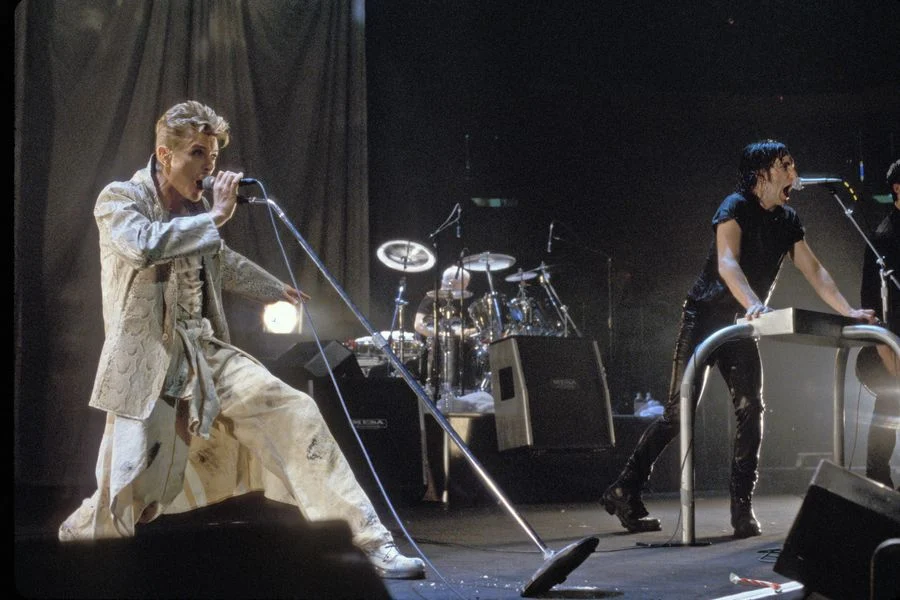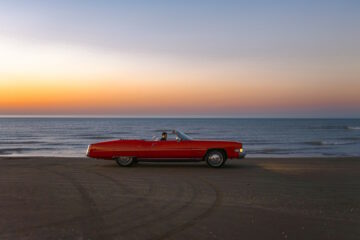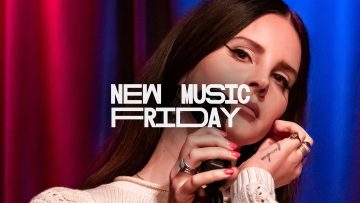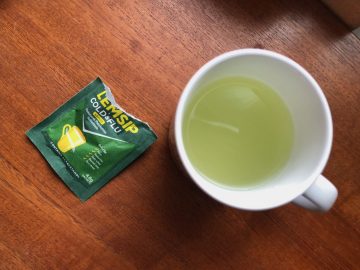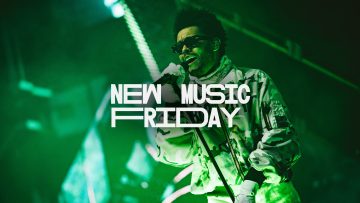Over his career, David Bowie lived many different lives. From his Goblin King mystique to Ziggy Stardust glamour, the Starman embodied reinvention. In line with his role as the rock world’s most coveted chameleon, Bowie’s tours were equally as unpredictable; from all-out theatrics to spellbinding outfit changes, the rockstar played a key role in redefining what a live show had the potential to be.
When Bowie crossed paths with Nine Inch Nails’ Trent Reznor in 1995, the pair would conjure up an entirely fresh live experience for their Dissonance tour, yet again pushing forward into bold, innovative new grounds.
Bowie and Reznor were an unconventional match made in heaven. The duo were two sides of the same coin; Bowie was the kingpin of art rock while Reznor pioneered the modern face of industrial metal, both undeniable trailblazers in their respective worlds of dazzling glitz and brooding grit.
Speaking to MTV, Bowie recalls his immediate fascination with NIN, stating how he made a point of sourcing and watching 1992’s ‘Happiness In Slavery’ after hearing MTV had banned the video. Bowie was so impressed that he immediately wanted to work with Reznor. “I like to be adventurous in terms of what I do on-stage as well as with the music, so I phoned up Trent’s management to find out if there would be any interest in Trent working with me on the tour,” he recalls.
Despite Bowie being Reznor’s artistic hero, Reznor was actually bigger than Bowie at the time – 1995 was the year following the release of NIN’s 1994 magnum opus The Downward Spiral. “We’re bigger than Bowie when that tour came up… but I say the only way we’ll play is if we open for him,” Reznor explains on a recent Rick Rubin podcast.
The pair decided to share the headline slot – almost passing on the baton mid-set. “I said, ‘I’ll give up my ending if you give up your entrance, and let’s make it so the show goes from us to you,’” Reznor explains. Bowie explained it to MTV as an almost ‘two-act play’, with NIN’s minimalism slowly edging into Bowie’s bombastic, multi-textural sonic flurry of larger-than-life art rock.
Bowie would emerge midway through NIN’s set, and the pair would collaborate on a few tracks before Reznor would eventually slink into the shadows. Whether Bowie is sashaying to Reznor’s grooving sax playing for ‘Subterraneans’, or Bowie is crooning along to the devastating ache of ‘Hurt’, the duo complement one another perfectly.
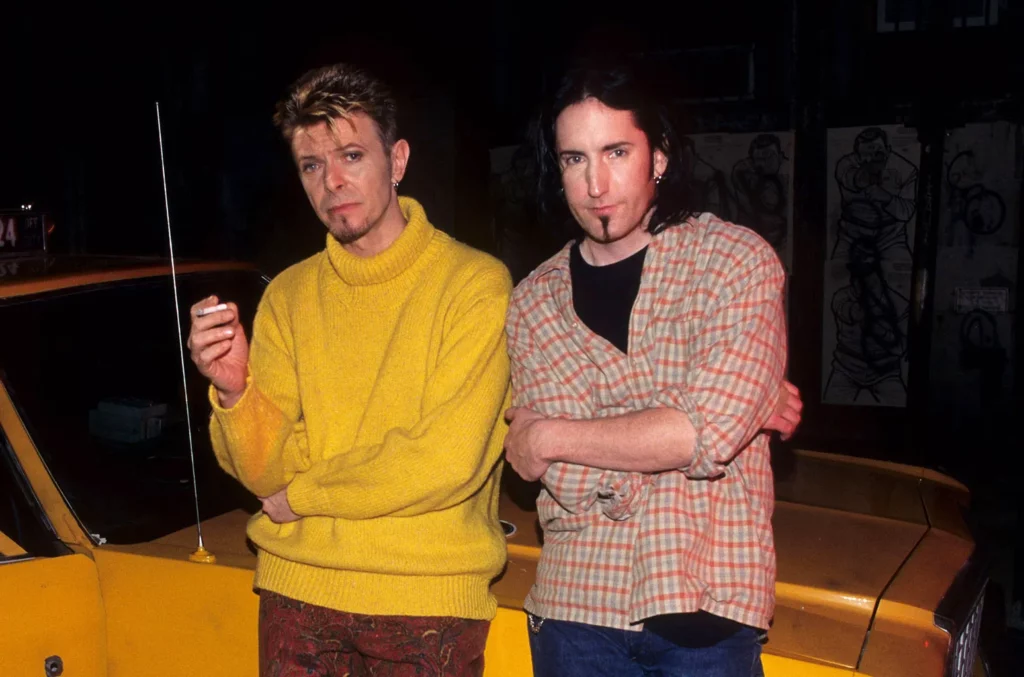
The yin and yang of the two acts is a total treat, elevating the atmospheric punch of NIN anthems or twisting funky Bowie cuts into something grittier and more hard-hitting. At times, it’s clear Reznor is in utter disbelief, grinning to himself as he soaks in every second.
READ MORE: Inside David Bowie’s other life as a neo-expressionist painter
Unfortunately, certain crowds didn’t appreciate the art of the performance. With clashing fanbases and Bowie’s reluctance to play fan favourites, instead focusing on unreleased tracks from his forthcoming Outside album, reviews from the time state that NIN were “the band most people really came to see.”
Bowie said there was an “almost 100% Nails audience,” and that he “had to adjust emotionally to the fact that we were going to be challenged every night to get in sync with what people were coming to the show for…. The more we did that, the more it communicated to the audience. That’s how it went from survival to being a good tour.”
The experience only cemented Reznor’s adoration of Bowie. “My whole adult life, I’ve looked at Bowie… as a guy fearlessly reinventing himself and unafraid of throwing away things that aren’t broken to fearlessly try new shit,” he explains to Rick Rubin. “And I was watching him do it, right in front of me.”
While Bowie has in the past described the tour as an act of “commercial suicide”, it’s a total success for art and live music. “I don’t know of any tour like it and I don’t know if you’ll see another one either,” he mused to MTV back in ‘95 – and, to this day, we still haven’t seen anything like it.
Keep up to date with the best in UK music by following us on Instagram: @whynowworld and on Twitter/X: @whynowworld

